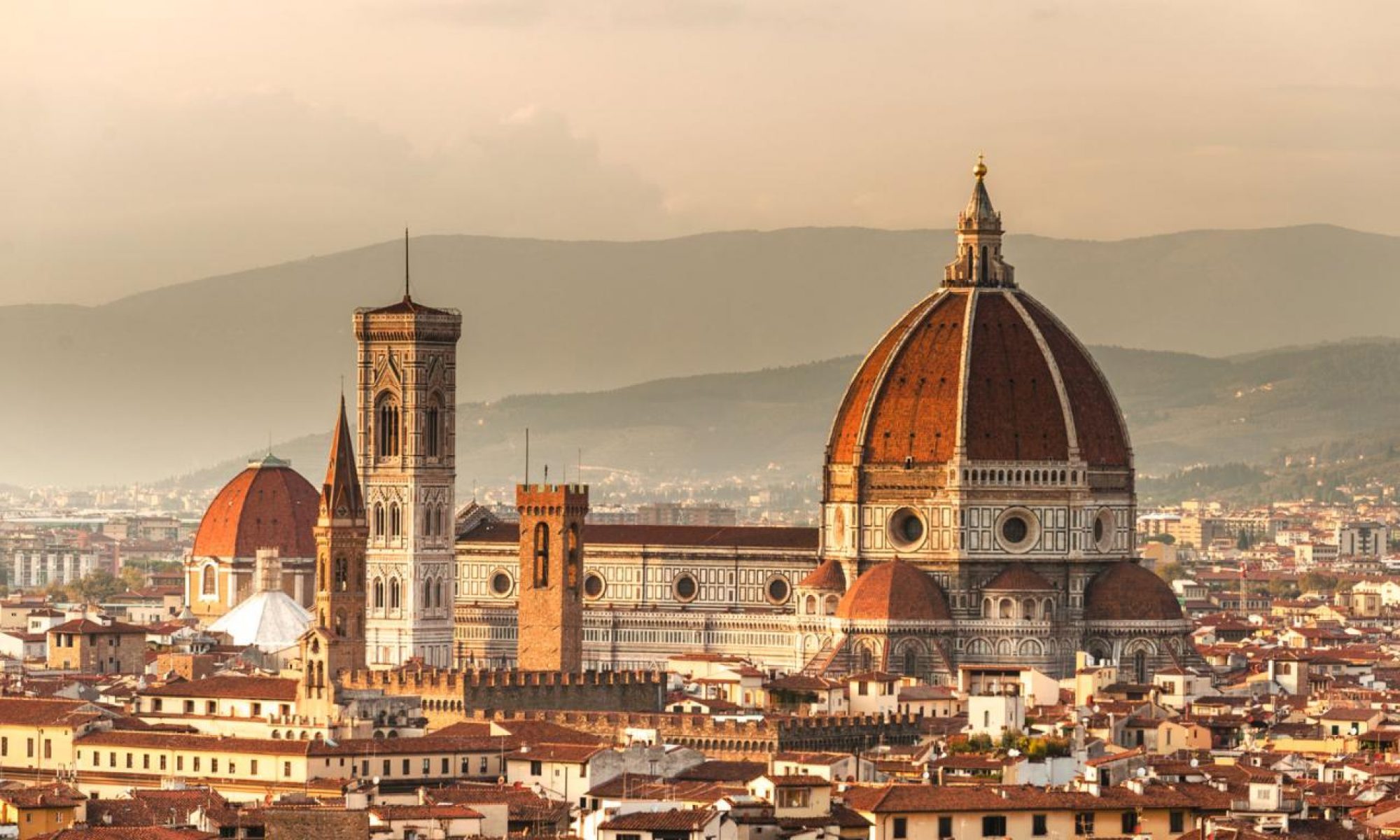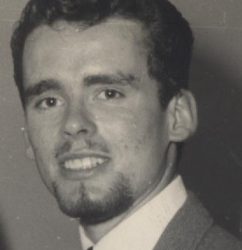November 30, 1960 Florence
Hello, J Dear,
I just got back from an afternoon in Empoli, a small town about twenty miles or so down the Arno on the way to Pisa. It was a bright, spring-like day and I went with the Colonel and Ede to see a re-enactment (in medieval costumes, with horses) of the war conference which was held after the battle of Montaperti (1260, a few miles from Siena) in which Farinata, the victor, convinces his Ghibellines to spare Florence and not raze her to the ground. Long golden trumpets, swords, standards, halberts, bright colored costumes—it was quite a show. They read out loud Canto Ten of Dante’s Inferno in which Dante (a White or moderate Guelph) encounters Farinata in the circle of the heretics. Farinata is lying on his back, agonizing in a fiery coffin but when he hears Dante talking to Virgil in Italian (with a Florentine accent) he begs him to stop and talk with him. Dante does. They soon realize that they belonged to opposite parties and start arguing bitterly. Here are Farinata’s first words to Dante (before he discovers that he is a Guelph). They are not easy to translate but I’m sure you will appreciate the nobility of the language, the concision and power of the lines. Farinata refers to Florence as his patria. This shows how powerful the city state was in the minds of people during the Middle Ages. I try to keep this in mind when I visit cities in Italy. The pride in one’s city of birth is still there.
O, Tosco, che per la città del fuoco
Oh, Tuscan who through the city of fire
vivo t’en vai così parlando onesto,
alive, go about your way, thus speaking modestly,
piacciati di restare in questo loco.
May it please you to stay in this place.
La tua loquela ti fa manifesto
Your speech reveals you to be
di quella nobil patria natio
of that noble fatherland (Florence) a native
alla qual forse fui troppo molesto.
to which maybe I was too harsh
My trip to Empoli was an exciting experience and I’m grateful to Ede and the Colonel for tipping me off and taking me with them. They are watching out for the Dante-loving Canadian. [This passage was taken from my recent book, “Florence, Dante and Me”. You can see the cover and read excerpts by going to my website: http://www.godwinbooks.com]




